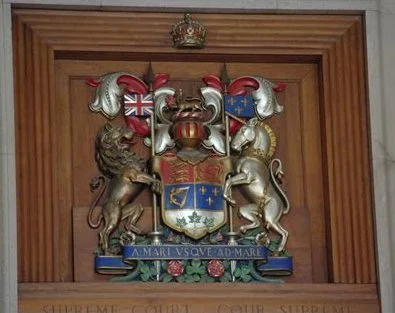A blog about journalism and transparency
Note to readers: In 2023, I moved my blog to substack. You can access it and subscribe here.
Those pesky mandate letters
Premier Doug Ford’s government in Ontario recently got a helping hand from the Supreme Court of Canada, which agreed to hear its case about cabinet secrecy.
Ford wants to keep secret all mandate letters to his ministers, arguing they’re cabinet confidences and excluded from the reach of the province’s freedom-of-information (FOI) legislation. Mandate letters set out each minister’s priorities, and typically are created for new cabinets or shuffles.
In 2018, CBC journalist Nicole Brockbank asked under FOI for the 23 letters distributed to new ministers in Ford’s newly elected Progressive Conservative government. She was denied, and appealed to the province’s information commissioner, who sided with Brockbank and ordered release of the letters.
The Ford government then went to court and lost twice, most recently in January at the Court of Appeal for Ontario. The Supreme Court of Canada on May 19 agreed to hear the case, as usual giving no reasons for its decision. An Ontario election is set for June 2, so the case will not be resolved before the vote.
The case hinges largely on the idea of deliberations. Ontario’s FOI law protects cabinet deliberations, in order to promote candour during decision-making. The 23 mandate letters are cited in the agenda of a July 11, 2018, Ford cabinet meeting, as a so-called “Chair note” at the end, indicating only that they were being distributed to ministers. They were not listed as part of formal cabinet deliberations.
So there is a technical element to the case. Had the mandate letters been moved into the agenda proper, and been the subject of even a few moments of discussion, they likely would be counted as part of deliberations. (You can bet that any future mandate letters will be moved onto official agendas to better protect their secrecy, and that some discussion will ensue in cabinet to lock in the deliberative protection.)
Since the election of the Trudeau Liberals in 2015, federal mandate letters have been proactively published as a matter of policy. In 2019, their mandatory publication within 30 days was embedded in law. I remain skeptical about their value as windows into government. In a previous blog, I cited a couple of examples in which mandate letters gave cryptic clues to policy changes. But for the most part, these federal documents have become public-relations exercises.
Mel Cappe, a former clerk of the Privy Council (1999-2002), made this point at an event sponsored by the Centre for Free Expression earlier this year. As someone who helped write mandate letters for the Chretien government, Cappe is worth quoting at length:
“If the mandate letters are going to be made public, they will be useless as a strategic instrument of governing,” he said. “They will be merely the reiteration of the [election] platform commitments. And that’s exactly what we’ve seen at the federal level. Justin Trudeau released all of his mandate letters … Look at the minister of finance’s mandate letter. It goes on for pages and pages, and it looks like the platform. And what’s the priority for the minister of finance? I have no idea.” Cappe’s view is that prime ministers will find some non-transparent way to convey priorities to ministers because the function of mandate letters changes when they become routinely public.
We must wait many months before the Supreme Court of Canada rules on the Ford case. The prospects are not good for transparency. The high court has twice sided with government in FOI cases, in 2011 to protect federal ministers’ offices from scrutiny, and in 2014, to protect advice provided by Ontario public servants. Even if the court rules against the Ontario government in this case, the Ford administration can adopt legal strategies to protect future mandate letters – or simply change the purpose of the documents to make them marketing tools rather than instruments of governance. This is the fundamental flaw of pro-active disclosure regimes: governments still control the information flow and can bend it to their purpose. That’s not transparency, which only effective FOI laws can deliver.
May 24, 2022

